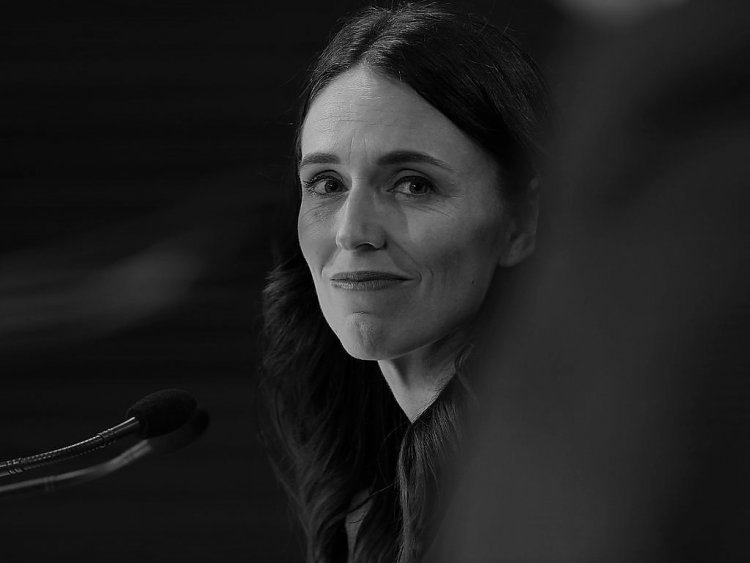Jacinda Ardern: How New Zealand’s Prime Minister Thrived Through Her Leadership

New Zealand is set for its upcoming general election on October 17. An opinion poll showed support for Prime Minister Jacinda Ardern’s party, which is seeking a second term in office, at 48 percent, down 5 percentage points since the last poll in late July.
The main opposition National Party also lost 1 percentage point taking it to 31 percent, under newly elected leader Judith Collins.
The results mean Labour could get 62 seats and would be able to govern alone without any coalition.
Small parties such as the Green Party got 6 percent support while the ACT New Zealand surprised with 7 percent support.
But populist New Zealand First Party, a kingmaker in the last election, dropped to 2 percent, which means it would not get into parliament if it does not win an electorate seat.
All recent polls have pointed to a comfortable victory for Ardern, who has won global praise for her leadership during the pandemic.
The leader had implemented tough lockdowns when then the coronavirus pandemic erupted, which health experts say has helped contain the virus.
In the first televised debate before the vote on Tuesday, Ardern said she stood by her coronavirus programme that has limited the outbreak’s toll to 25 deaths in a population of 5 million.
“I know there is a huge amount of uncertainty right now. That’s why a plan is necessary, so is optimism; that’s what Labour will bring,” she said.
Judith Collins, 61 had failed to secure New Zealand’s borders; said Ardern’s government.
Ardern has called it a “COVID election” and focused her campaign on highlighting the government’s success in tackling the health and economic challenges thrown up by the pandemic.
Ardern’s stardom, however, masks some of the domestic issues that the ruling coalition has failed to tackle, including a shortage of affordable housing, child poverty, and tax reforms.
Collins, popularly known as “Crusher Collins”, became National Party’s third leader this year and has promised massive infrastructure spending, reduced taxes and a boost to the economy.
Jacinda Ardern, who became the world’s youngest female leader after unexpectedly winning power in 2017, holds huge appeal domestically and globally where she has garnered praise for her views on issues such as women’s rights, climate change and diversity.
Ardern has also won international praise for her empathetic and decisive response to last year’s attack on two Christchurch mosques by a white supremacist, in which 51 Muslim worshippers were killed.
In October of 2017, when Jacinda Ardern became the Prime Minister of New Zealand- a country with a population of fewer than five million. Ardern’s centre-left party, Labour, did not win the election outright, but instead struck an unlikely partnership with N.Z. First, a party that, as its name suggests, has made occasional swerves into nationalism.
Ardern was the youngest Prime Minister of New Zealand in a hundred and fifty years. Ardern’s rapid ascent was very welcoming and the years ahead of her testified to her soaring popularity and for all the right reasons.
Navigating the Covid-19 Pandemic
A recent poll found that Ardern is the country’s most popular leader in 100 years. Almost 92 per cent of respondents say they support the measures she has implemented.
During a press conference on 11 May, she thanked her “team of five million” for their great efforts and the sacrifices they had made to protect the country’s most vulnerable during the outbreak. “Kiwis from all walks of life were resolute and determined – determined that this was a war we could eventually win, but only if we acted together,” she said of the low infection rate at the time.
On 14 May, New Zealand schools reopened, restaurants and shops resumed trading, and workers returned to their offices. The country now has no active Covid-19 cases – news which made Ardern do a ‘a little dance’, before telling the nation: “While the job is not done, there is no denying this is a milestone. So can I finish with a very simple, ‘Thank you, New Zealand.”
Recently, Prime Minister Jacinda Ardern declared that New Zealand beat the virus again and announced restrictions in the country’s largest city would be eased, after a second COVID- 19 wave was contained.
After a new cluster emerged in Auckland in August, New Zealand was forced into lockdown for almost three weeks. With no new confirmed cases in Auckland for 12 days, Ardern said that the virus was now under control and congratulated residents for enduring the second lockdown.
During all of her press conferences throughout the outbreak, Ardern has remained consistent in being concise and direct about her strategy. But she has also been honest in about her concerns. It’s this authenticity that has been a constant trait in her leadership since in 2017.
Responding to the Christchurch shootings
On 15 March 2019, New Zealand, for the first time in its modern history, witnessed a dreadful terrorist attack on the Muslim community, in which 51 people lost their lives. Ardern, who is agnostic, held a press conference to deliver a message that would bring her country’s citizens together, uniting them against hatred. “They are us,” she said of the victims. “New Zealand has been chosen because it was safe, because it was no place for hatred or racism. Because we represent diversity, kindness, compassion, home for those who share our values. Refuge for those who need it.” Then, addressing the shooter, she said: “You may have chosen us – we utterly reject and condemn you.”
She immediately implemented tighter gun laws across the nation.
Her approach to motherhood and multi-tasking
Ardern and her partner, Clarke Gayford (a celebrity TV fisherman), welcomed their first child, Neve Te Aroha Ardern Gayford, in 2018. In doing so, she became the first head of government to give birth in office since Benazir Bhutto (the former prime minister of Pakistan). She also became the world’s first leader to go on maternity leave while in office, returning to work six weeks later.
Note: only five per cent of the world’s leaders are women!
Before becoming a mother, Ardern once shut down a TV host who asked her whether a woman still has to choose between having a family and pursuing a successful career. She replied: “[That is] totally unacceptable in 2017 to say that women should have to answer that question in the workplace.” Furthermore, her government passed a bill to extend paid parental leave policies from 18 to 22 weeks in New Zealand.
Ardern formally introduced Neve to the world by taking her to a United Nations conference on 28 September 2018. In doing so, she sent out a powerful message about women in leadership roles. “I am not the first woman to multi-task,” she said during an interview on Radio New Zealand. “I am not the first woman to work and have a baby – there are many women who have done this before.”
Her passion for climate change
Ardern, who was raised by her police officer father and school cafeteria worker mother in Hamilton, New Zealand, has been vocal about her desire to help save the planet. “We’re small, and our contribution to the global emissions profile is even smaller, but we are surrounded by island nations who will feel the brunt of climate change acutely,” she has said of New Zealand’s role in the global battle against the climate crisis. “I see ourselves as having a responsibility to demonstrate that we can and we will lead the charge.”
In 2018, she set out her plan to ban single-use plastic bags throughout the country, with retailers facing fines of $65,000 (£33,000) if they failed to do so. Why? Because she had received so many letters from school children about the issue, she knew she needed to act.
Women’s Rights
For Ardern, achieving gender equality is at the top of her agenda. “All the things left to achieve gender equality are at the top of my list,” she said in 2018. She’s accustomed to breaking glass ceilings, as only the third female prime minister of New Zealand, the second youngest, and the youngest female prime minister.
Since she became a leader in 2017, she’s consistently been praised for her warm approach, a million miles from the aggressive and ruthless personality traits that have been associated with leaders for centuries. “Kindness, and not being afraid to be kind, or to focus on, or be really driven by empathy,” she has said of what is at the heart of her leadership style. “I think one of the sad things that I’ve seen in political leadership is – because we’ve placed over time so much emphasis on notions of assertiveness and strength that we probably have assumed that it means you can’t have those other qualities of kindness and empathy. And yet, when you think about all the big challenges that we face in the world, that’s probably the quality we need the most.”
Ardern recently announced that sanitary products will be free for young women in schools across the country from 2021, in a bid to help eradicate period poverty.
Listening To Children
At the Social Good Summit in 2018, she described speaking to children to find out what they felt needed changing. “Their response was really stark for me,” she said. “They didn’t list all of the technological devices that they want; they didn’t say skate parks. They raised things like poverty… wanting to spend more time with their parents and their family. They looked beyond themselves. And that’s what we should do as leaders, and as a government, too.”
Before becoming a world leader, Ardern worked for an international youth organisation, visiting refugee and displaced children. “Perhaps that’s the reason that, if you ask me why I’m in politics, my answer will be simple: children,” said Ardern during a United Nations General Assembly in 2018. “Like all of you here, I feel a huge duty of care to the most vulnerable, and genuinely believe that our success as leaders depends on no lesser standard than the wellbeing of children.”
In the same year, she announced a goal of cutting child poverty in New Zealand in half over the next 10 years, and set out targets for doing so. She declared her intention to “make New Zealand the best place in the world to be a child”.
Her response to the country’s volcano eruption
Before the Covid-19 outbreak, Ardern had to deal with a volcano eruption in New Zealand. The natural disaster killed 16 people on White Island in December last year. The investigation is ongoing, but Ardern’s response was, as per, guided by empathy. Paying tribute to those who died, she said: “Many people did extraordinary things to save lives, those who have been lost are now forever linked to New Zealand, and we will hold them close.”
Among all of these above qualities, something else that have made Jacinda Ardern the most popular prime minister of New Zealand in a century was on display as she took an earthquake in her stride during a live television interview.
“We’re fine,” she declared cheerfully as the 5.9-magnitude quake shook New Zealand’s parliament house in Wellington for 15 seconds. “I’m not under any hanging lights.”
Her coolness under pressure, self-discipline and the decisiveness of her government’s response to the coronavirus pandemic has led some to call Ardern the most effective national leader in the world!















































